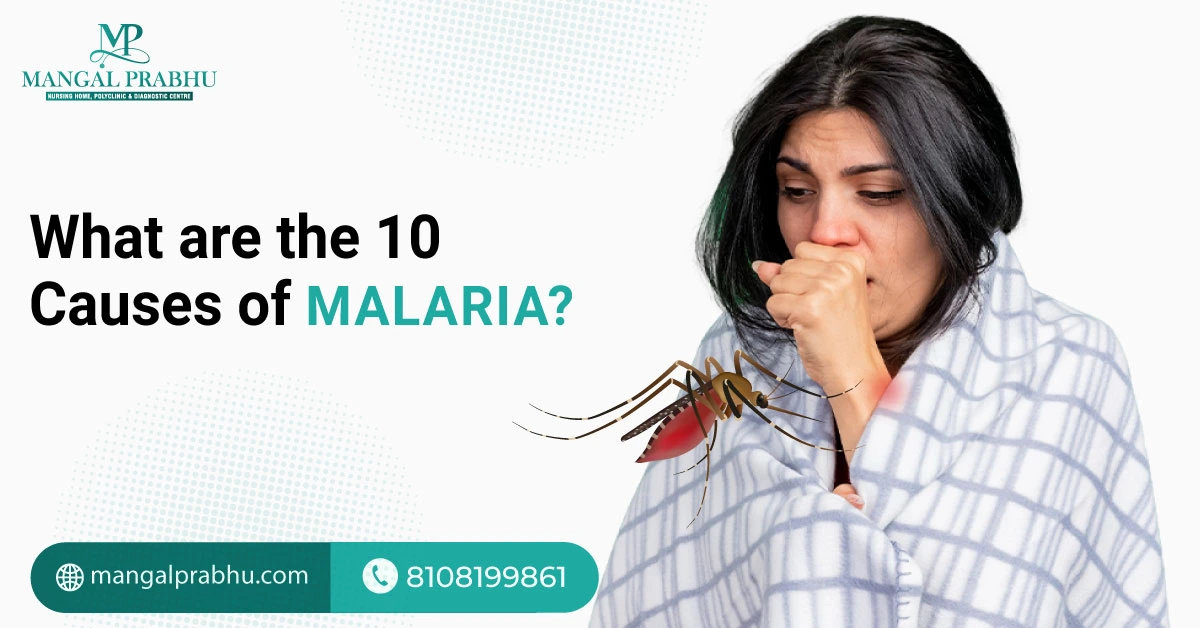
Malaria is caused by a parasite that enters your body through a mosquito bite. The mosquitoes that spread Malaria survive in countries with hot temperatures. The symptoms include high-grade fever, shaking chills, fatigue, and weakness. Every year, thousands of people get admitted to the hospital for malaria treatment in Navi Mumbai. Let’s check out some common causes of Malaria so you can take preventive actions to reduce your risk.
What are the 10 Causes of Malaria?
1. Plasmodium Parasites
As mentioned above, malaria is caused by a parasite called Plasmodium. It’s divided into five types, with each having the potential to result in an infection. It enters your body when an infected mosquito bites you and injects the parasite into your bloodstream.
2. Anopheles Mosquitoes
Not every mosquito bite results in malaria. It’s caused by female Anopheles mosquitoes that are the primary vector of the plasmodium parasites. Likewise, malaria doesn’t spread from person to person. Sneezing, coughing, or touching the infected person won’t increase your risk of developing malaria.
3. Climate and Environmental Factors
Malaria is more prevalent in countries with temperatures hot enough for the Anopheles mosquitos to thrive. Mosquitoes love warm and humid climates, which is why malaria is often reported in South Africa, South America, and Asia.
4. Poor Sanitation and Water Management
Malaria risk is higher in areas with stagnant water, such as ponds or containers filled with water. Dirty places are also a common breeding ground for these mosquitoes.
5. Weak Immune System
People with weak immunity, such as young babies, elders, and those with existing medical issues, are at an increased risk of malaria, as their immunity might not fight off the infection as effectively as that of a healthy adult.
6. Deforestation
Without trees, forests and other areas collect rainwater, which acts as the perfect breeding ground for malaria-causing mosquitoes.
7. Poverty
People who cannot use preventive measures, keep their surroundings clean, or have basic healthcare facilities might develop and spread malaria.
8. Lack of Access to Healthcare
If people with no access to healthcare facilities develop malaria, they might spread it to other people unknowingly. This happens when the parasite remains in the infected person’s bloodstream. If another mosquito bites them, it catches the parasite and injects it into someone else’s body through a bite. The cycle keeps going.
9. Resistance to Antimalarial Drugs
Incorrect or overuse of anti-malarial drugs can cause resistance. The parasite Plasmodium might develop resistance to these drugs and, hence, not respond to it.
10. Population Movement and Migration
If you travel to a country that’s highly prone to mosquito-related infections, you might be more vulnerable to catching the disease. This is especially true for people who don’t take preventive measures like using mosquito nets and repellants. People migrating to your country from South Africa, Asia, and other countries might also increase your risk of getting malaria.
If you suspect an infection, it’s important to see an infectious disease specialist in Navi Mumbai for treatment of malaria. Fever, headache, nausea and vomiting, muscle or joint pain, and chills are the common signs that indicate you need to see a doctor.
